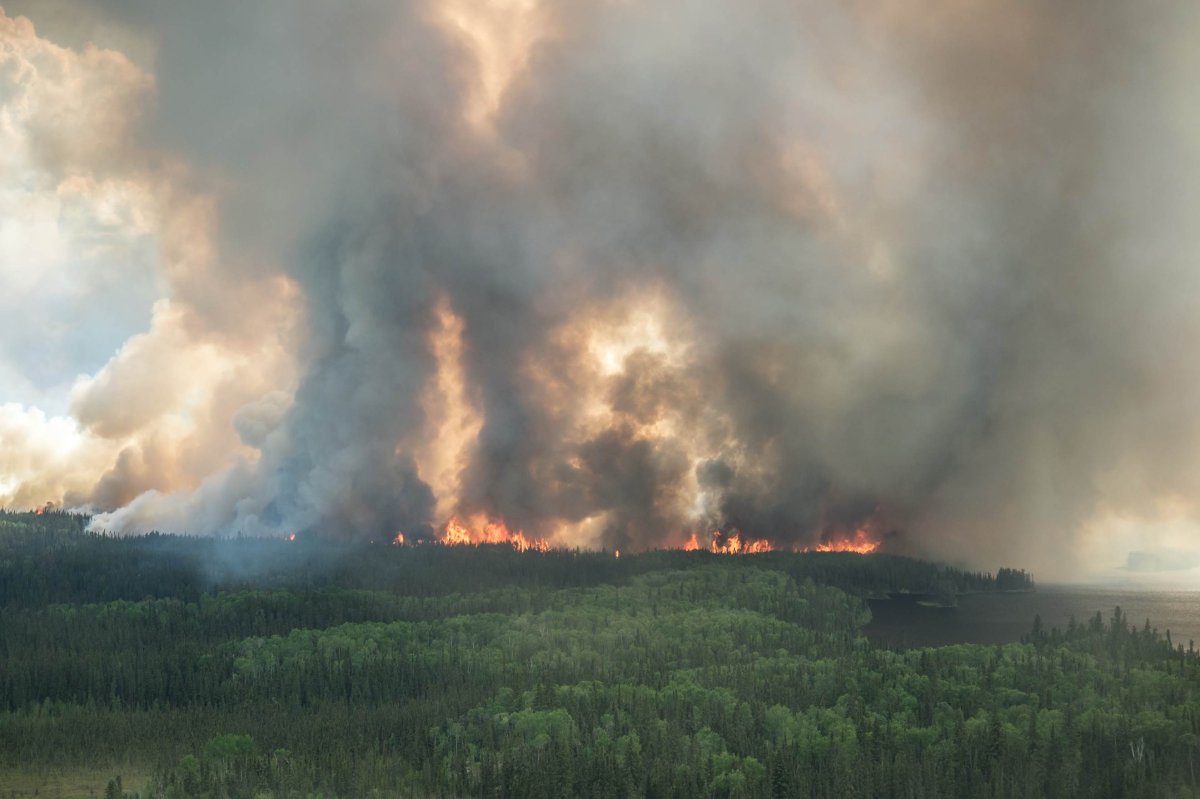REGINA – There’s good news for those working tirelessly on the front lines of the wildfires – reinforcements are on the way.

Sixty-nine reservists from all around Saskatchewan are headed up north to battle the blaze, being called into action for the first time in decades.
It’s been two weeks since people were first evacuated from northern communities and the fire situation is holding steady.
As of Friday morning, there were 119 active wildfires in Saskatchewan, with only one new blaze breaking out overnight.
While evacuees are anxious to get home, the province is urging caution.

Get daily National news
There are 616 evacuees staying in emergency shelters in Regina, with another 568 in Saskatoon.
In total, almost 9,000 displaced residents have sought assistance from the Red Cross.
“People have maybe found friends and family that they can stay with for a while, and that’s the other movement we will see,” said Red Cross Coordinator Cindy Fuchs.
One hundred thirty people just arrived from Deschambault Lake, near La Ronge, where the Egg fire merged with the Eli fire overnight. That fire alone is five and a half times the size of Saskatoon.
The provincial emergency management coordinator said local leaders face serious pressure to give residents the green light to return home. “We really appreciate the fact that it’s not easy, certainly when we can’t tell you when that risk will be reduced,” said Duane McKay.
- Retired Quebec teacher buys winning lottery ticket at last minute, wins $40M
- N.B. election: Higgs went to ‘very dark place’ with Liberal joke, opponent says
- NDP want competition watchdog to probe potential rent-fixing by landlords
- Jasper mayor says CN Rail relocation will be devastating: ‘Deeply disappointed’
Wildfires have destroyed 62 structures this year.
“This is stuff,” McKay said. “We are focused on the people, public safety for those individuals. All of the materials certainly can be replaced.”
The firefighters are continuing to work day and night:
“Those crews are fully engaged. They will likely work a 12 day period, have two days of mandatory rest, then they’re back at it for another shift. They’ve been maintaining this pace for five to six weeks now,” said McKay.
The province is also urging evacuees to contact their home insurance provider, as travel expenses and meals may be covered under the policy.








Comments